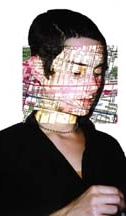2006 was a wonderful year for reading thanks in large part to the small but focused libraries of The Banff Centre and The Ucross Foundation and to S. W. Welch and The Word, my two favourite bookstores in Montreal.
“In the crush of a lightning technology that slams out computerized volumes stuck together with a baleful glue, it is good now and then to be reminded of a book as something worthy of body-love. The nostrils also read.” Cynthia Ozick
Here’s a not quite chronological list of the books my nostrils and I read in 2006:
Robert Allen, The Encantadas
Samuel Beckett, Watt
Cynthia Ozick, Metaphor & Memory
Louise Steinman, The Souvenir
Roy Parvin, The Longest Road in America
W. G. Sebald, The Rings of Saturn
Ernest Hemingway, The Snows of Kilimanjaro & Other Stories
Annie Proulx, Heart Songs
Donna Tartt, The Secret History
George Saunders, Civil War Land in Bad Decline
Alan Garganus, Plays Well With Others
Lorrie Moore, Who Will Run the Frog Hospital?
Stacey Richter, My Date With Satan
Haruki Murakami, Sputnik Sweetheart
Annie Proulx, Bad Dirt
Ron Carlson, The Hotel Eden
George Saunders, Pastoralia
Mary Oliver, White Pine
Honor Moore, Red Shoes
Annie Proulx, Close Range
Karen Russell, St. Lucy’s Home for Girls Raised by Wolves
Julian Barnes, The Lemon Table
Gore Vidal, Burr
André Gide, Lafcadio’s Adventures
Marguerite Yourcenar, Coup de Grace
Catullus, The Poems of Catullus
Tracy Emin, Strangeland
Ann Patchett, Bel Canto
Louise Erdrich, The Beet Queen
John McPhee, Rising from the Plains
Margaret Atwood, The Robber Bride
Doris Lessing, The Sweetest Dream
H. M. van den Brink, On the Water
Jonathan Garfinkel, Glass Psalms
Barry Hannah, Bats Out of Hell
Amy Hempel, At the Gates of the Animal Kingdom
Nathaniel Hawthorne, Twice-Told Tales
William Faulkner, As I Lay Dying
Guy Davenport, The Death of Picasso
Alexis O’Hara, (more than) Flithy Lies
William Kennedy, Ironweed
Gertrude Stein, Blood on the Dining Room Floor
Haruki Murakami, South of the Border, West of the Sun
Kenzaburo Oe, A Personal Matter
Richard Ford, A Multitude of Sins
Alain Robbe-Grillet, Project for a Revolution in New York
Simone de Beauvoir, When Things of the Spirit Come First
Michael Boyce, Monkey
Ali Smith, Hotel World
Tracy Chevalier, Girl WIth A Pearl Earing
Victoria Glendinning, Electricity
Iris Murdoch, A Word Child
Zsuzsi Gartner, All the Anxious Girls on Earth
David Bergen, The Time In Between
Sharon Olds, The Gold Cell
Don McKay, Another Gravity
Kunt Hamsun, Hunger
Greg Hollingshead, The Roaring Girl
Mavis Gallant, Home Truths
Sharon Olds, Satan Says
Joey Dubuc, Neither Either Nor Or
Rainer Maria Rilke, Notebooks of Malte Laurids Brigge
Jorge Luis Borges, The Aleph and Other Stories
Julia Darling, Crocodile Soup
Carole Angier, Jean Rhys
Mary V. Dearborn, Queen of Bohemia: The Life of Lousie Bryant
Djuna Barnes, New York
Ali Smith, The Accidental
Sheila Heti, The Middle Stories
Flannery O’Connor, A Good Man is Hard to Find
André Gide, Strait is the Gate
Tobias Wolff, In the Garden of North American Martyrs
Robert Allen, Standing Wave
Germaine de Stael, Corinne, or Italy
Tennessee WIlliams, The Roman Spring of Mrs Stone
Italo Calvino, If On A Winter’s Night A Traveller
Montaigne, Travel Journal
Karen Connelly, The Lizard Cage
Mary Robison, Believe Them
Elena Ferrante, The Days of Abandonment
Golda Fried, Nellcot is my Darling
Adrian Michael Kelly, Down Sterling Road
Nicole Brossard, The Blue Books
Todd Swift, ed., Future Welcome
Lalumiére & Moser, eds, Lust for Life
Barbara Gowdy, The Romantic
Alister Macleod, No Great mischief
Flannery O’Connor, Mystery and Manners
Dorothea Straus, Virgins and Other Endangered Species
Iris Murdoch, The Nice and the Good
Rimbaud, Une saison en enfer & Le bateau ivre
Reading List 2005: http://luckysoap.com/lapsuslinguae/2005/12/reading-list-2005.html
. . . . .

